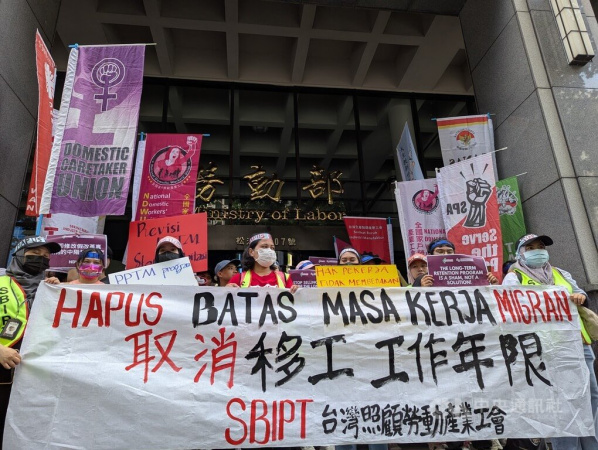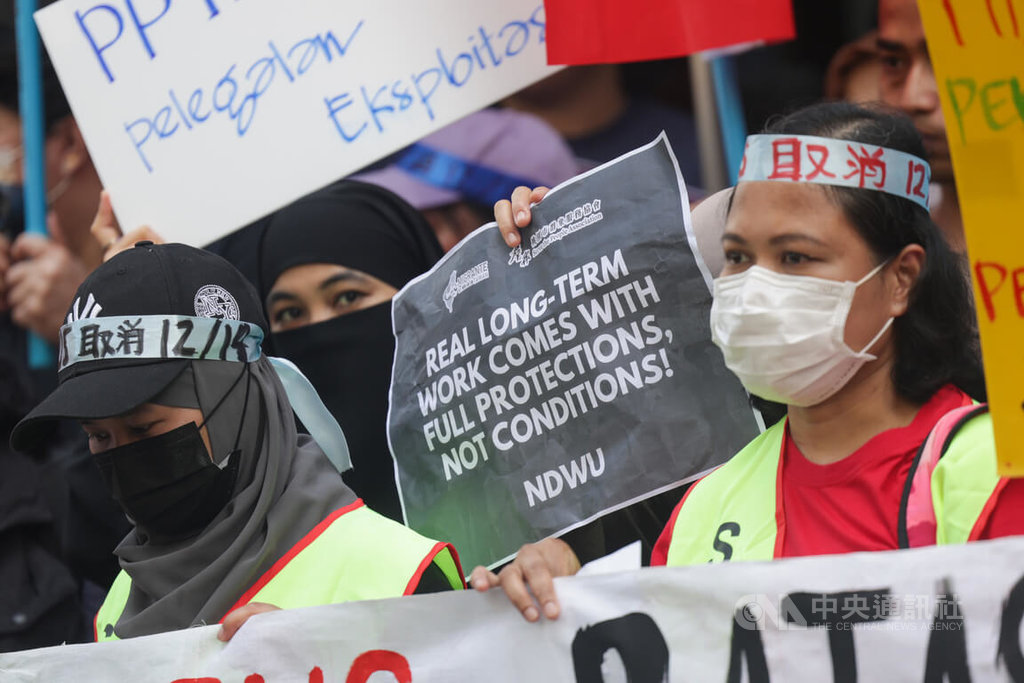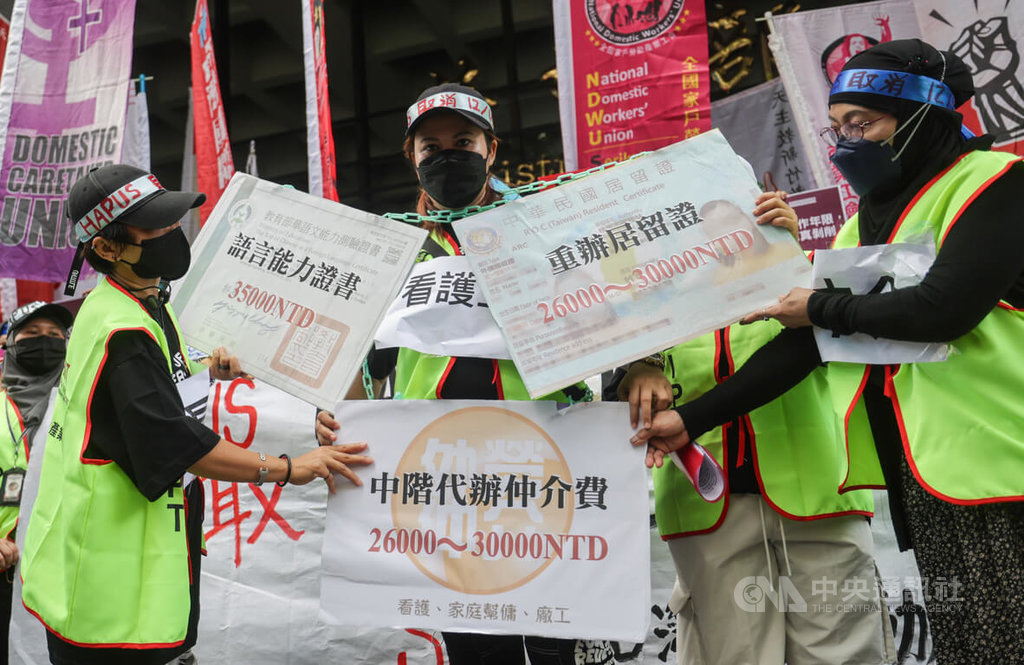
On Sunday morning, Serikat Buruh Industri Perawatan Taiwan (SBIPT) gathered in front of the Ministry of Labor to voice their demands. They called for the abolishment of the current regulation that limits blue-collar migrant workers to a maximum of 12 or 14 years of work in Taiwan. The union emphasized the need to safeguard migrant workers’ rights and expressed strong opposition to the mid-level skilled worker policy, stating that while it offers a slight wage increase, it often requires workers to take on more tasks—essentially becoming another form of exploitation.
Arrey, a migrant caregiver in Taiwan, said:
“It’s not just about reaching 12 or 14 years and then having to go home. That scares me, because I’ve gotten used to life in Taiwan. I don’t want to leave.”
SBIPT Chairperson Fajar stated:
“We are holding this press conference today because we want to abolish the work-year limit—whether 12 or 14 years.”

SBIPT pointed out that the current mid-level skilled worker quotas and qualification criteria are largely controlled by employers, leaving migrant workers with almost no bargaining power. In order to stay in Taiwan, many are forced to sign labor contracts with employers and brokers that do not reflect the reality of their work. Though salaries may seem slightly higher, the job often becomes significantly more demanding and exhausting—clearly diverging from the supposed goal of retaining skilled labor.
SBIPT Secretary Kavin said:
“We demand reform of the broker system to make it fairer and more transparent. The evaluation should be based on the actual skills of the migrant workers, not entirely on employers. Migrant workers’ rights must be genuinely protected.”
In response, Su Yu-kuo, Director of the Cross-Border Workforce Management Division at the Ministry of Labor, said:
“If we go back to discussing the cancellation of the work-year limit, that would just mean continuing under the existing migrant worker status. Even after transferring to mid-level skilled positions, there are still wage verification mechanisms in place.”

Although May Day has passed, the fight for labor rights continues. SBIPT urges immediate revisions to the mid-level migrant worker program and hopes Taiwan will move toward a direct-hire system free from broker exploitation. Facing a domestic labor shortage, the Ministry of Labor recently stated that it is currently conducting a comprehensive review of migrant labor policies.
[PNN / Reported by Chu Feng-chih and Chung Chien-kang | Edited by Hung Shih-chen ] 2025/5/18 13:10
[Photo by CNA Reporter Pei Zhen & Zhang Xiongfeng]
